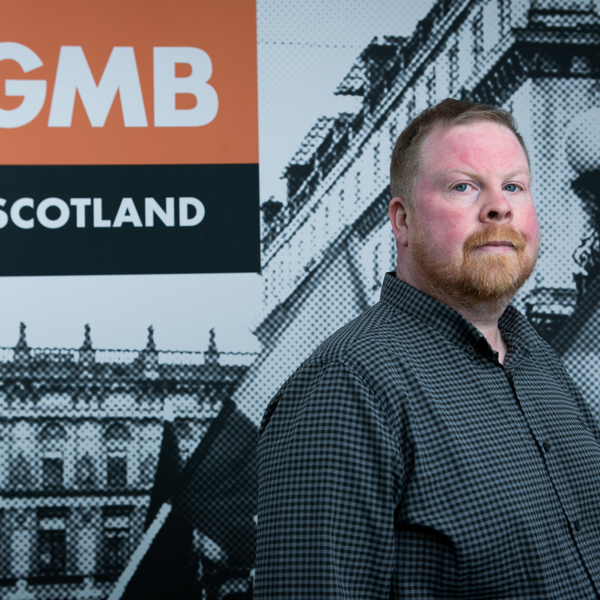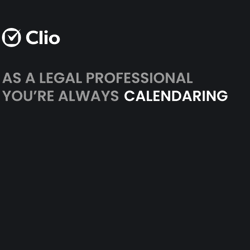Legal aid is staring into an abyss and this week proved the depth of the crisis

A suspect in custody, a phone call for legal representation, an attempt to exercise a right, yet the call goes unanswered. Journal editor Joshua King considers if this unthinkable could become reality.
Solicitors, advocates, sheriffs and judges, trainees, students and paralegals — you will know Cadder v HM Advocate. Whether through study (post-2010) or practice, the professions’ understanding of one of Scotland’s foremost judgments is clear: suspects in police custody have a right to legal representation.
And we all know the mechanism by which this happens: legal aid. Or at least, we thought we did. If a person does not have or cannot afford their own solicitors, one can be provided and funded through legal aid. A call is made to the Solicitor Contact Line, run by the Scottish Legal Aid Board (SLAB).
So last week’s news that solicitors staffing the phone line have backed industrial action through the GMB Union in the wake of changes to working conditions must be a clarion call to us all.
What happened at SLAB
The 16-member team who run the hotline – as first reported in The Scotsman — voted “overwhelmingly” in favour of strike action to reverse changes they claim have been made by SLAB management.
The Solicitor Contact Line is a team of publicly-funded criminal defence solicitors who provide a 24-hour advice and representation service to suspects under arrest.
Previously, the line was staffed by two solicitors at a time who would respond to calls from officers requesting legal support on behalf of those in custody. Private firms would then be contacted but, if they were unable or unwilling to supply a solicitor, one of the on-call lawyers from the hotline would travel to represent the suspect.
Now SLAB is moving to a 12-hour shift structure with solo cover for the line.
Earlier this week, a SLAB spokesperson said the organisation had received no formal notice from the GMB Union.
Nevertheless, the union says 80 per cent of staff backed the action and members are no calling for urgent talks with bosses. A letter has also been submitted to justice secretary Angela Constance.
John McCartney, GMB Scotland organiser in Slab, said: “Our members are qualified solicitors working around the clock to ensure anyone arrested gets the legal representation they are entitled to.
“Their work is an essential protection for the legal rights of every Scot and the foundation of our criminal justice system.
“Their work is stressful, challenging and underpins our justice system. It is unreasonable to expect a single solicitor to sustain national coverage over a 12-hour shift.
“These are dangerous changes introduced for no good reason and must be reviewed then reversed.”
McCartney said the changes — which include reducing the number of solicitors taking calls to one — have piled pressure on staff: “There is no operational justification for these changes and there is no evidence of cost savings.
“Managers took this decision despite concerns and imposed it with no consideration of the impact it will have on staff and, more widely, fair access to justice in Scotland’s legal system.
“The clear determination of staff to reverse this decision is no surprise and demands urgent action.”
A spokesperson for the Scottish Legal Aid Board said: “We have received no formal notification from the GMB Union that their members employed on the Solicitor Contact Line intend to take strike action and have contacted GMB officials to seek clarification.
“Based on analysis of staff utilisation and patterns of demand for our 24/7 telephone advice service, some solo homeworking shifts were incorporated into the SCL rota at the start of this year. Subsequent ongoing staffing issues have resulted in a number of additional ad-hoc solo shifts since April.
“We are continuing to monitor utilisation rates and call volumes to ensure staffing levels are appropriate and there is no impact on service users. To date these have not shown any cause for concern and we are keeping this under review.
“Our approach to discussions with the GMB has been collaborative and consultative and we would hope clarification from officials will enable us to find a solution to this situation.”
Ian Moir, Co-Convener of the Law Society's Legal Aid Committee said: "Potential strike action by solicitors staffing the SLAB hotline is further evidence of the unsustainable pressure that Scotland's legal aid system is under and the unreasonable expectations that are being placed on solicitors.
"Legal aid work is complex and stressful, whether it is working on this hotline or providing essential legal representation via a law firm. The financial and other support that's being provided simply isn't good enough and that's reflected in the decline in legal aid availability."


What is the wider context in the legal aid crisis?
The news comes just days after the Law Society of Scotland and the Scottish Association of Law Centres wrote a joint letter to the parliamentary committee investigating civil legal aid provision in Scotland urging a change to fees in that field.
Both the Law Society of Scotland and the Scottish Association of Law Centres jointly wrote to the Scottish Parliament's Equalities, Human Rights and Civil Justice Committee stressing that an urgent uplift in fees must be prioritised.
The letter, signed by Law Society President, Pat Thom and Scottish Association of Law Centres Secretary, Aaliya Seyal, states: “Any changes made to system need to be led with greater support for legal aid solicitors. Specifically, an across-the-board increase in legal aid fees.
“Not providing this support will only add greater pressure to an already strained system. We are keen to emphasise that this requirement for an uplift in fees is not about drawing comparisons with private practice, this is about access to justice – a fundamental human right.
“There is an opportunity here for the Committee to recognise the professionalism of those who cater for people in Scotland who need, but cannot afford, legal representation; and signal the trust and support legal aid solicitors require so they may continue the integral role that they play in ensuring Scotland’s legal system works.”
Solicitors boycotting bid to clear court backlogs
As the news of the SLAB strike broke, solicitors elsewhere were preparing to withdraw from the implementation group for the new Summary Case Management (SCM) scheme because of out-of-date legal aid rates.
As first reported in The Herald, the Scottish Solicitors Bar Association (SSBA) has said solicitors will withdraw from the new scheme, leading to “active disruption” across Scotland later this month.
It could mean sheriff courts are further deluged and backlogs — already at unmanageable levels — are likely to grow.
Under the SCM scheme, piloted in five courts, time-intensive non-jury cases covering issues including domestic abuse, assault and drink or drug driving are streamlined.
Evidence is disclosed to defence representatives earlier, early guilty pleas are more likely in theory and therefore the number of trials and court appearances can be reduced.
But The Herald reports it has seen emails revealing solicitors will boycott the scheme after the government appeared to backtrack on updating legal aid pay rates.
In an email from a Scottish Government official to the SSBA dated May 22 addressing an update to legal aid rates, it stated: "I don’t have authority to make a firm offer yet, hopefully we wont have too much longer to wait.
"But, I don’t think we will be far away from that when we are able to make a formal approach."
Yet, since then, in written correspondence between the Scottish Government and the SSBA, Victims Minister Siobhian Brown said she was “not in a position to make any formal offer” on the rate of pay in legal aid cases.
Rates have remained almost unchanged since the turn of the millennium, having risen only five per cent in the past quarter century.
The total legal aid budget for all forms of legal aid in 20223-24 was £151 million, with £85 million of that spent on criminal legal aid.
A Scottish Government spokesperson said: “The Scottish Government value the role of legal aid providers and have announced action to make the system simpler and easier for both solicitors and those who need legal assistance along with longer-term proposals for funding and improving the delivery of services.
"This includes a review of legal aid fees that will help develop regular assessments to ensure the system remains fair and sustainable and delivers for the public purse. We continue to meet all legal aid costs in full, with expenditure last year of £169 million. A further £14.2 million has been approved in this year’s Budget to meet continuing rising costs.”
Is the legal aid system truly on a precipice?
In short, yes. It seems almost unthinkable that Scots would not have access to legal representative through legal aid, and yet on our current trajectory that is surely now inevitable.
Perhaps the regularity of news that Scottish legal aid is in crisis, the frequency of calls for reform, the repeated use of terms like legal aid desert, cliff edge and precipice (including by this Journal) have inured us to the severity and reality of what is unquestionably a crisis.
In The Herald’s coverage, SSBA president Simon Brown reveals that in the last month alone he is aware of “four criminal solicitors who have left defence work”.
Two, who were both at a senior partner level, have gone to the Crown, and one girl astonishingly has left law entirely to start better paid work as cabin crew.
The most heart-breaking was a young lawyer who left crime to move to personal injury. I met them recently and asked if they were enjoying the new job to be met with the response “No, I hate every minute of it, but it pays 30% more than I could hope to get in crime"
The number of lawyers providing criminal law cover at any meaningful level in the whole of Scotland is less than 500, and that is not a sustainable number.
Thankfully civil legal aid reform is on the agenda at Holyrood, and not before time. The Equalities, Human Rights and Civil Justice Committee has heard evidence on the issue and insiders say there will be a serious push for reform.
But it may be too late for a criminal system which is staring into the abyss. The best time for action would have been years ago. The next best time is today. The Law Society’s #LegalAidMatters campaign continues apace and there is broad support across the profession.
But if our lawmakers do not act fast, the legal aid crisis will become a law-breaking situation. Law students of the future may look at Cadder not just as a cornerstone case for change, but as a window onto an era which no longer exists.








